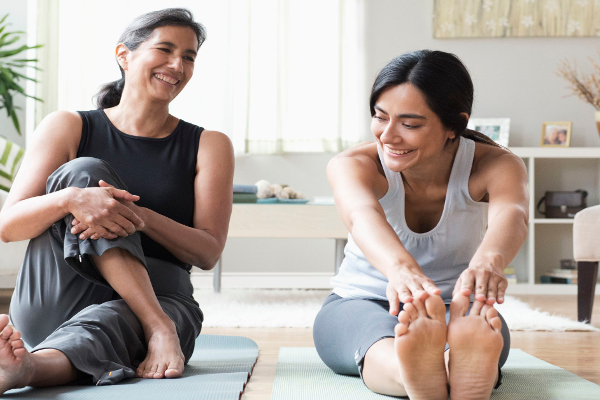According to an interesting new research on aging brains and aerobic workouts, exercise may alter the communication between vital brain regions as we age, boosting parts of thinking and memory. Regular exercise sharpens memory in older African-Americans by causing previously disconnected areas of the brain’s memory center to begin connecting in complicated and healthy ways.
The results deepen our knowledge of how movement affects thought and emphasize the necessity of remaining active regardless of age.

The notion that physical exercise enhances brain function is now widely accepted. Experiments with animals and humans indicate that exercise increases the number of neurons in the hippocampus, which is crucial for memory formation and storage and also improves cognitive abilities. Regular physical exercise slows the normal decrease of brain capacity in the elderly, which may prevent age-related memory loss and reduce the risk of dementia.
According to a new study from the University of Georgia, physical exercise may maintain cognitive capacities as you age. And moderate exercise is sufficient to have an effect.
Marissa Gogniat, the study’s principal author and a recent Ph.D. in psychology from the Franklin College of the Arts and Sciences, said, “This discovery does not imply that older individuals should immediately begin running marathons.” This means that if you take more steps and move about your surroundings a little more, it may be beneficial to your brain health and help you maintain your independence as you age.
Exercise enhances brain function
The research, which was published in Sport Sciences for Health, monitored the physical activity and fitness levels of 51 older persons. The participants completed cognitive functioning tests and received MRIs to evaluate brain function.
In addition, they wore a device that monitored their intensity of physical activity, number of steps, and distance traveled. The researchers evaluated fitness with a six-minute walking test in which individuals walked as swiftly as possible to cover the most distance feasible in the allotted time.
“We’ve always been taught that exercise is beneficial, but I believe this is proof that exercise may genuinely alter the brain,” Gogniat said. And this affects your ability to operate in your everyday life.
Brain networks are enhanced by physical exercise
The brain consists of several different networks. These networks are constantly exchanging information with one another.
However, different regions of the brain are active at certain periods. The network that is active while the body is at rest, for instance, is deactivated when a person begins doing a task. At that moment, a second network begins operating.
While one of these networks is operational, the other must be disabled. If not, it is an indication that a person’s brain is not operating as it should.
These networks are essential for performing everyday activities like memorizing critical information and exercising self-control. However, as individuals age, these duties often become more challenging.
This was the first research to evaluate how the interaction of these networks with physical exercise and fitness affects brain function.
“This article is intriguing because it provides evidence that when individuals with suboptimal brain network function participate in physical exercise, their executive function and independence improve,” said Gogniat. We are not suggesting that you undergo a drastic life transformation. Perhaps you could simply take the stairs to work. Get up and move about a little more. Not insane, high-intensity training yields the greatest return on investment.”
How much exercise is necessary for good brain function?
No one is required to go to extremes. Even the most basic routines and exercises are sufficient to keep the body and mind active.
About 150 minutes of moderate-intensity exercise each week is advised to remain healthy and active. This may be accomplished by exercising 30 minutes each day, five days per week. Seems quite achievable!
If you’re new to exercise, you may begin with a few days each week of walking or another cardiovascular activity. Start with some little resistance exercise after that. You may increase the intensity or length of these workouts as you advance through your program.
It is also advisable to increase the quantity of daily non-exercise activities. This may include climbing stairs, going to the grocery store, or taking walks during work breaks. They may seem basic, yet they contribute significantly.
Choose a workout program that you love and look forward to since this is what will help you remain with it.
Remember that exercise is a major contributor to enhanced mental health and cognitive function as well as physical wellness. Feeling terrific and having a clear mind are prerequisites for looking beautiful. And getting there is as easy as working out!